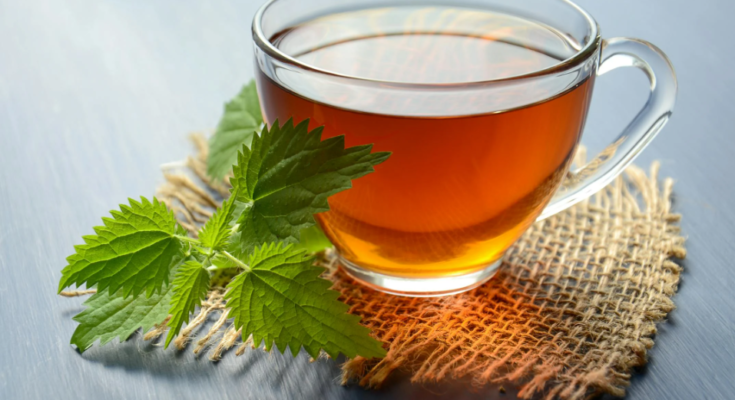1. What is Green Tea?
Green tea is produced from the leaves of the Camellia sinensis plant with very little oxidation and not all black tea and oolong teas undergo fermentation in processing. The fermentation process retains antioxidants and natural nutrients. Green tea originated in China, where it has continued to be widely consumed throughout East Asia for its medicinal properties for centuries. Today green tea is found and accepted throughout the world as a beverage and commonly marketed for potential benefits to cardiovascular health, mental acuity and especially weight loss.
2. The Components of Green Tea Green
tea has been associated with health benefits due to a mix of numerous bioactive compounds, such as: Catechins:
The most important one is EGCG, or Epigallocatechin Gallate, a naturally occurring antioxidant Caffeine: A very modest amount of caffeine will be in green tea, but does not have much caffeine relative to coffee. Flavonoids and polyphenols: These help to lower oxidative stress and inflammation.
These compounds have complementary physiological effects as they promote metabolism, increase fat oxidation and enhance energy levels, all components required for the process of weight loss.
3. Green tea and metabolism – how does it work?
Metabolism is the rate at which your body burns calories to carry out basic functions of the body. A fast metabolism helps you burn more calories throughout the day – even while resting. Green tea can help increase your metabolism in the following ways:
- Thermogenesis – Thermogenesis refers to the method of heat production in organisms, and green tea can help increase thermogenesis thereby increasing energy expenditure.
- Caffeine – Caffeine stimulates the central nervous system. The more stimulated you are, the more fat will be broken down.
- Catechins – EGCG and other catechins present in green tea help to increase the level of norepinephrine in the body, which helps in the fat burning process.
Scientific Evidence A study published in the American Journal of Clinical Nutrition showed that energy expenditure increased by 4%, over a period of 24 hours, when green tea extract was infused in the diet. Another study showed that fat oxidation was 17% higher over the same amount of time when subjects consumed green tea before moderate-intensity exercises.
4. The Function of EGCG in Fat Burning
Epigallocatechin gallate (EGCG) is the most vital antioxidant contained in green tea. During weight loss: Fat oxidation is the process of breaking down stored fat for energy, and EGCG reduces fat oxidation during its protective action. EGCG appears to be especially effective in burning visceral fat, the highly harmful abdominal fat associated with disease such as type 2 diabetes and heart disease.
5. Green Tea as an Appetite Suppressant
Weight loss is not just about burning calories but also about reducing calories – or the calories you “unintentionally” consume. Green tea may have a modest role in suppressing appetite. Even though more testing is needed, there are some studies alike to those with the EGCG appetite suppression which argue that catechins class might regulate hormones like ghrelin and leptin associated with hunger. In practice, individuals who drink/take green tea socially experience less snacking or other calorie intake.
6. Green Tea vs. Other Tea and Weight loss Drinks
how does green tea compare to other popular weight loss drinks ?
| Beverage | Caffeine Content | Antioxidants | Fat Burning Potential |
| Green Tea | moderate | high (EGCG) | high |
| Block Tea | high | moderate | modrate |
| herbal Tea | non | varies | low |
| match Green Tea | high | very high | very high |
| coffee | high | low | moderate |
7. How Much Green Tea Do You Need For Weight Loss?
There are different recommendations for how much green tea is considered a useful amount (for purposes of weight loss)and how much will produce noticeable benefits overall, but here are some guidelines: 3−5 cups per day: This range was shown in studies to increase metabolism and fat oxidation. Green tea extract dosage: 250−500 mg of catechins daily The most important thing to remember is moderation. You can have too much green tea and suffer from caffeine-related side effects.
8. Timing the Drink of Choice:
When to Drink Green Tea for Fat Burning When you drink green tea is important as well:
Morning: To jumpstart your metabolism and increase alertness Prior to physical activity
Before workouts: Green tea will help you enhance fat burning while exercising
Between meals: Green tea will help with appetite control
9. Green Tea Extracts and Supplements: Do They Work?
Green tea supplements, like capsules or powdered extracts, contain concentrated forms of catechins and caffeine. They’re typically marketed as fat burners, or fat-burning pills.
Benefits:
More potent than brewed tea It can be easier to consume regularly if you take the supplement versus making and drinking tea every day. Green tea extracts are usually combined with other fat burners (like L-carnitine).
Risks:
Liver side effects may occur with excess use. All supplements are not clinically tested, nor are all supplements high quality. If you do go the route of supplements, go with standardized extracts that have 45-50% EGCG and have third-party verified purity.
10. Side Effects and Considerations
While green tea is safe for most people when taken as directed, if consumed in excessive amounts can cause:
- Caffeine sensitivity: Jitters, insomnia, faster heart rate
- Stomach upset: Can happen, particularly on an empty stomach.
- Liver toxicity: Rare occurrence but can be associated with excessive use of green tea extracts. Pro
Tip:
It’s good to keep it moderate (3-5 cups daily) and consult with a doctor if you’re pregnant, breastfeeding, or taking other prescriptions
11. Realistic Expectations: What Green Tea Can and Can’t Do
Green tea is not a magic cure. It will not melt fat off overnight, and you cannot substitute a good healthy diet and daily exercise for green tea.
What Green Tea Can Do:
- Slightly enhance fat burning
- Boost your metabolism slightly
- Give your efforts added energy and a bump in reduced appetite
What Green Tea Cannot Do:
- Dramatically reduce weight on its own
- Make up for a poor diet in calories, and a sedentary lifestyle
Most of the research concludes that green tea will enhance modest weight loss of 1 – 3 kg over periods of a few months when used in conjunction with other healthy behaviours.
12. Does Green Tea Help with Weight Loss?
- Have a warm cup of green tea in the morning.
- Use iced green tea in place of sugary drinks.
- Use matcha powder in smoothies or yogurt.
- Use green tea before working out.
You must be consistent in your use. Make it a habit you look forward to instead of a job
13. Success Stories and Case Studies
Several people have successfully lost weight while incorporating green tea in their diet. Here are just two examples:
Case Study 1: A 35-year-old woman recently died after changing her diet and increasing her walking while taking a green tea extract.
With these changes, over a period of 3 months, she lost 12 lbs. Results may vary from individual to individual, but including green tea usually will enhance a person’s health and any program for weight loss or management.
14. Conclusion:
Is Green Tea Worth It for Weight Loss? Green tea can be a useful tool for your weight loss program or journey, but alone it will not be effective. Green tea is a natural way to maximize potential benefits by potentially helping to &start;boost&end; metabolism, enhance fat burning, and reduce in hunger. For it to make a long lasting weight loss happen, it should be used as a component of multiple programs, including healthy eating and exercise, as well as other lifestyle changes. In summary:
- Drinking 3–5 cups a day would likely work best
- Eat healthier & move yourself/exercise & monitor kcal
- Use a quality tea or supplement






yMfG VNYfWM axAuBFe ydk UVpXjk xaNpI qgFa
sorry i’m not understanding